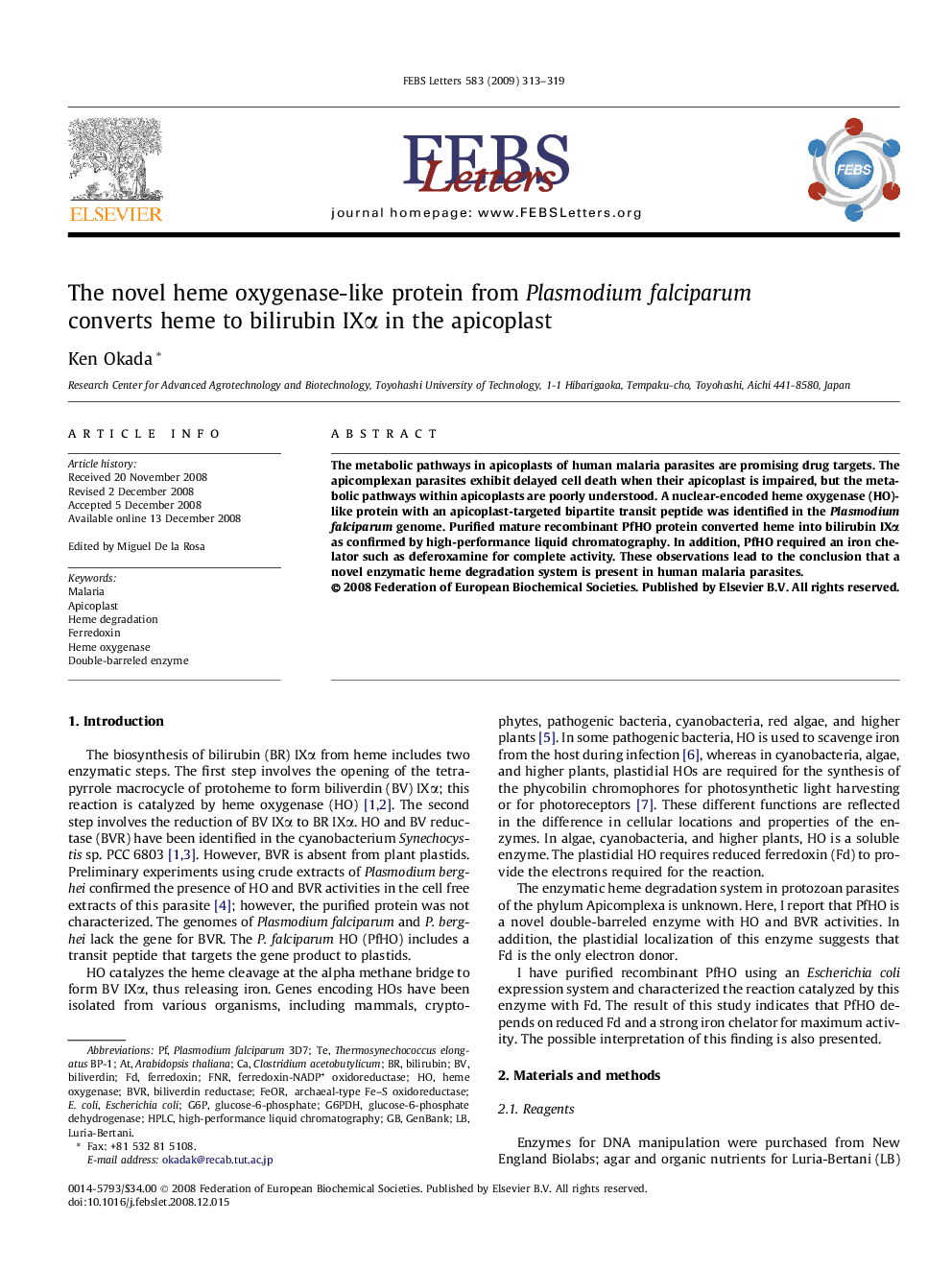| Article ID | Journal | Published Year | Pages | File Type |
|---|---|---|---|---|
| 2049965 | FEBS Letters | 2009 | 7 Pages |
The metabolic pathways in apicoplasts of human malaria parasites are promising drug targets. The apicomplexan parasites exhibit delayed cell death when their apicoplast is impaired, but the metabolic pathways within apicoplasts are poorly understood. A nuclear-encoded heme oxygenase (HO)-like protein with an apicoplast-targeted bipartite transit peptide was identified in the Plasmodiumfalciparum genome. Purified mature recombinant PfHO protein converted heme into bilirubin IXα as confirmed by high-performance liquid chromatography. In addition, PfHO required an iron chelator such as deferoxamine for complete activity. These observations lead to the conclusion that a novel enzymatic heme degradation system is present in human malaria parasites.
